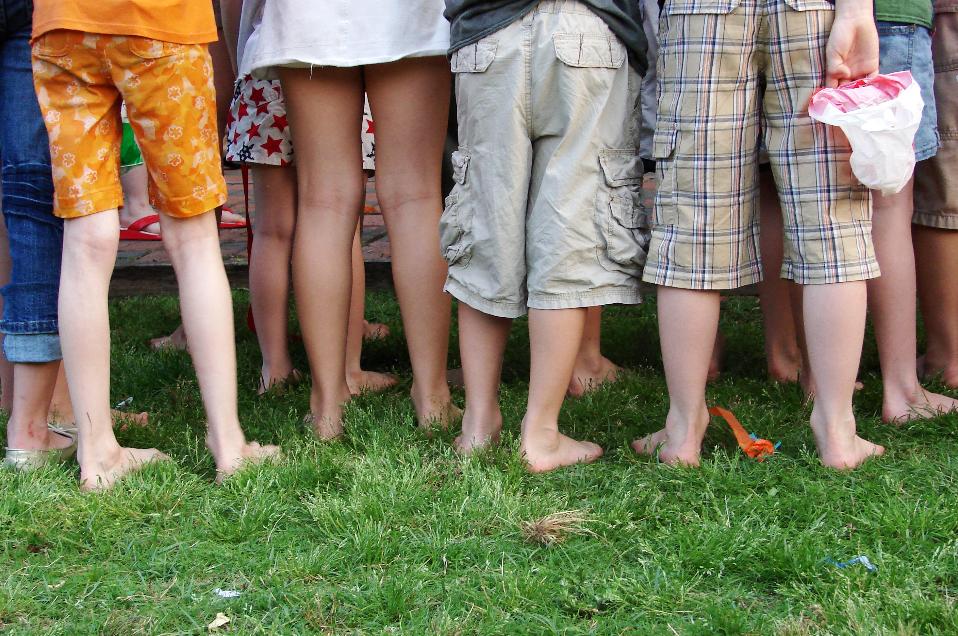NSW Government to ban the use of Alternative Care Arrangements for vulnerable children

The Minns Labor Government announced on Tuesday September 3, 2024 it will ban the use of unaccredited emergency accommodation for vulnerable children in the foster care system, reversing the former government’s reliance on these inappropriate and costly arrangements.
The announcement, made during Child Protection Week, follows numerous reports and distressing first-hand accounts that have revealed the terrible outcomes faced by children living in Alternative Care Arrangements (ACAs).
In a recent report by the Advocate for Children and Young People, one young person compared their experience living in an ACA to that of a "dog being moved from cage to cage."
Alternative Care Arrangements:
- >can cost upwards of $2 million per child per year,
- >have cost $500 million over the last six years,
- >often involve children being placed in hotels, motels and caravan parks with rotating shift workers instead of foster carers,
- >are the placement option of last resort for children in the foster care system, and
- >are provided by unaccredited agencies with limited government oversight who are not required to meet the NSW Child Safe Standards for Permanent Care.
The Government states it has consistently flagged its concerns with the use of ACAs and has already taken decisive action to reduce the number of children in these arrangements by 72 per cent. As at 16 August 2024, there are 39 children in an ACA compared to 139 in November last year.
Of the 39 children currently in an ACA, suitable alternative placement types have been identified for each individual, and efforts are ongoing to facilitate these transitions. The available options include returning the children safely to their parents, placing them with a foster carer or relative, or providing support in an intensive therapeutic care environment.
The NSW Government has recently expanded Intensive Therapeutic Care capacity and recruited approximately 200 emergency foster carers to help support children being moved out of emergency accommodation.
Within six months, unaccredited ACAs will be a prohibited placement type, which will complement other urgent reform measures already underway.
The Government is also reducing the number of children in other types of emergency accommodation. Since November last year, the total number of children in all types of High-Cost Emergency Arrangements (HCEAs) has fallen from 506 to 376 – a 26 per cent reduction.
The 2024-25 NSW Budget has invested $224 million in funding that will allow the Department of Communities and Justice (DCJ) to:
- re-enter the market as a foster care provider and expand the recruitment of DCJ emergency foster carers to include longer-term carers,
- introduce government-run intensive and professional foster care models,
- deliver government-run residential care for children where non-government providers are unable to offer stable placements,
- ensure children living in residential care are supported by high quality, accredited providers, and
- commence recruiting family time workers and additional caseworkers to undertake carer authorisation assessments.
These initial measures the Government states will help rebuild the broken out-of-home care system and ensure that more children grow up in safe and loving homes in NSW.
The Minister for Families and Communities Kate Washington said:
“Since I became Minister, I’ve made it very clear that vulnerable children do not belong in hotels, motels or caravan parks with shift workers instead of foster carers.
“We acted early, and we’re already seeing meaningful results, with the number of children in unaccredited Alternative Care Arrangements falling by 72 per cent in just eight months.
“The former government let the child protection system spiral out of control, and the use of these emergency accommodation providers for vulnerable children skyrocketed.
“The Minns Labor Government’s ban on ACAs is a critical step towards making the child protection system sustainable, and will put vulnerable kids on safer paths to brighter futures.
“Under our government, unaccredited emergency accommodation will become a thing of the past, which is long overdue.”
Minister puts child protection profiteers on notice: Greens
The reforms announced by Minister for Families and Communities Kate Washington represent bold first steps toward a child protection system that better safeguards the interests of children and their families, the NSW Greens state.
The changes include banning dangerous alternative care arrangements (ACAs), harsher penalties for third-party care providers who fail to meet reporting requirements and child welfare outcomes, and new foster care and casework capacity and support.
Greens MP and spokesperson for youth justice Sue Higginson said “These are welcome reforms which are absolutely necessary and long overdue,”
“For too long, the child protection system has split families, crushed foster carers, and funnelled untold public money to for-profit companies while actively harming children. The Department and previous governments have been complicit,”
“Today’s announcement is a brave first step, but it is just the first step. The Government must invest in early and genuine family support, and stable, permanent and culturally appropriate out-of-home care. They must clear out the entire out-of-home care system of profiteers who have commodified the harm of young people,”
“The Minister has a duty to overhaul the way this state cares for its most vulnerable children and the support of the Parliament to do so. For the sake of the children and young people, we can’t waste any more time,” Ms Higginson said.
The reforms follow an unambiguous briefing to senior decision-makers at the Department of Communities and Justice in which the Minister warned that “the government’s ultimate responsibility cannot be outsourced,” and criticised a department that “sometimes wraps itself in cotton wool, instead of the child we're protecting, or the family we're supporting.